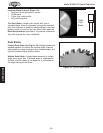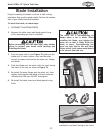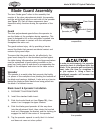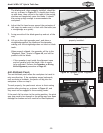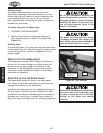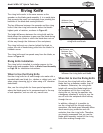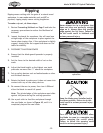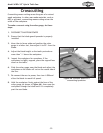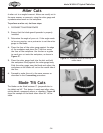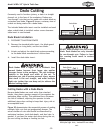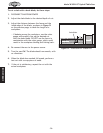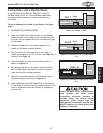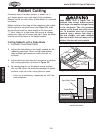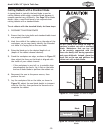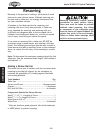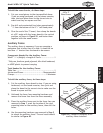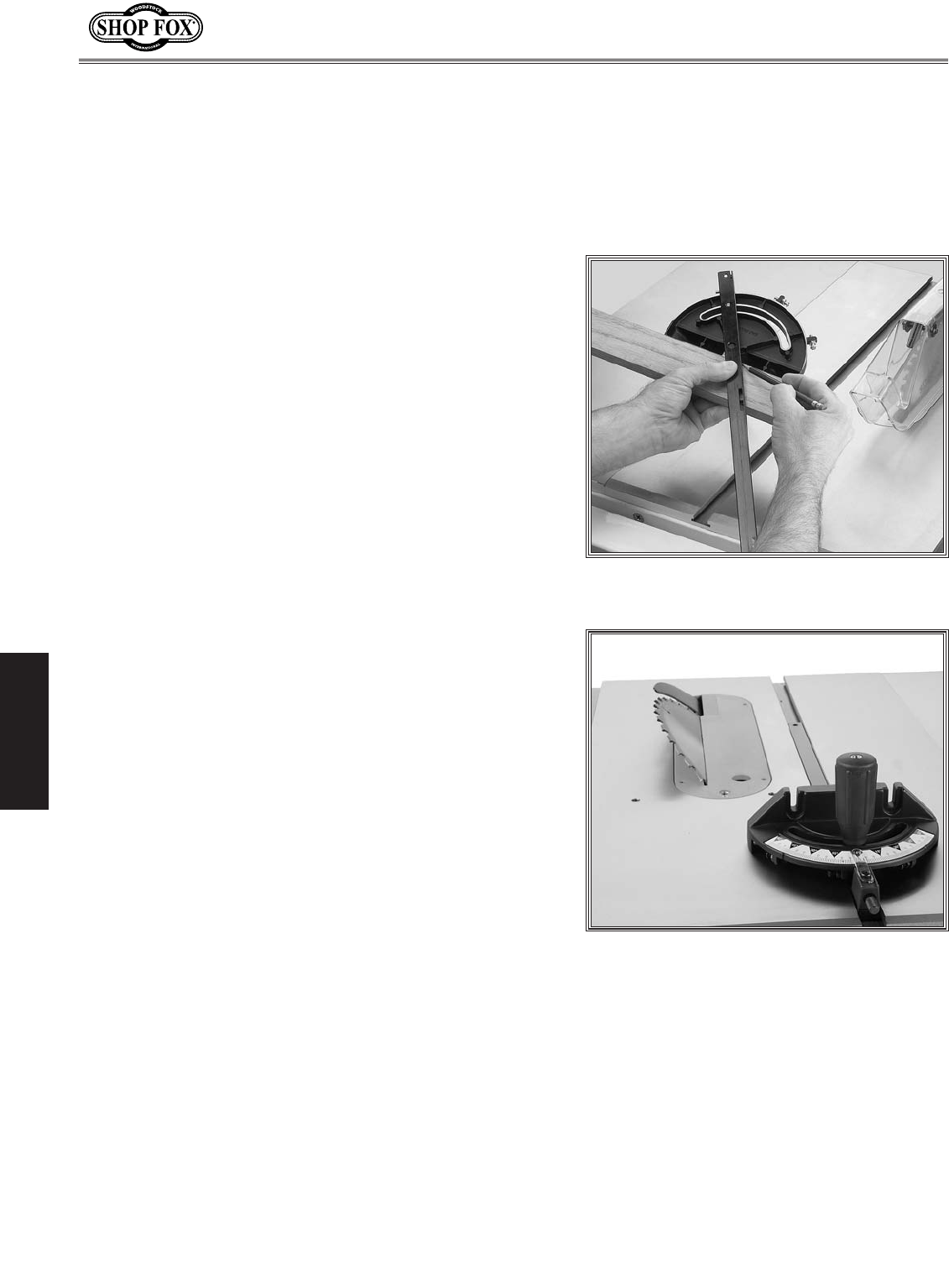
Df[\cN(/)+('?pYi`[KXYc\JXn
-34-
FG<I8K@FEJ
Miter Cuts
A miter cut is an angled crosscut. Miters are usually cut in
the same manner as crosscuts, using the miter gauge and
a predetermined mark on the workpiece.
To perform a miter cut, do these steps:
1. DISCONNECT SAW FROM POWER!
2. Ensure that the blade guard/spreader is properly
installed.
3. Determine the angle of your cut. If the angle needs
to be very precise, use a protractor to set the miter
gauge to the blade.
4. Place the face of the miter gauge against the edge
of the workpiece and place the T-slot bar across
the face of the workpiece. Use the bar as a guide
to mark your cut onto the workpiece, as shown in
Figure 47.
5. Place the miter gauge back into the slot and hold
the workpiece firmly against the miter gauge body.
Slide the miter gauge near the blade and adjust the
workpiece so the blade will cut on the waste side of
the line.
6. Proceed to make the cut in the same manner as
described in the Crosscutting procedure.
Blade Tilt Cuts
The blade can be tilted between 0° (perpendicular to
the table) and 45°. This feature is used most often when
cutting bevels, compound miters, or chamfers. Figure 48
shows an example of the blade when tilted 45° to the
table.
Figure 47. Example photo of making a
miter mark.
Figure 48. Blade tilted 45° to the table.



